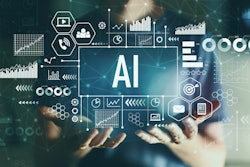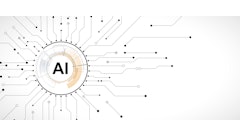
Global supply chains are facing unprecedented levels of volatility. With shifting trade policies, geopolitical conflicts, and fluctuating tariffs, businesses must constantly adapt to new disruptions. The ability to respond quickly and decisively has become a critical differentiator in maintaining supply chain resilience. The issue is that the complexity and scale of these challenges are overwhelming for human teams alone. This is where agentic AI is already stepping in to revolutionize supply chain decision-making, enabling procurement teams to navigate uncertainty with greater speed and precision.
In the current political discourse, trade regulations and tariffs are changing at an unprecedented pace, creating ripple effects across supply chains. A decision made today can have immediate financial and operational consequences for procurement teams managing thousands of supplier contracts. In such a volatile landscape, traditional procurement processes are too slow to keep up. Agentic AI can rapidly assess real-time market conditions, adjust strategies on the fly, and renegotiate supplier terms within minutes rather than days, weeks or even months. This speed is essential when businesses need to pivot quickly to avoid major financial losses or supply disruptions.
One often-overlooked advantage of running AI across an entire set of SKUs and vendors—including those procurement teams wouldn’t normally negotiate—is the ability to unlock significant capital. These savings can be used strategically to offset financial shocks, such as tariffs on essential goods. For example, if a pharmaceutical company sources a critical drug exclusively from China, the savings generated elsewhere in procurement could help absorb tariff costs, buying time to restructure supply chains without immediate financial strain. This level of agility is crucial in today’s unpredictable economy, where tariffs and trade policies can shift overnight.
For multinational companies working with hundreds of thousands of vendors, responding to changing regulations manually is simply not feasible. Agentic AI enables procurement teams to scale their operations efficiently by automating supplier negotiations, pricing adjustments, and compliance assessments across an entire supply chain network. Unlike generative AI, which can hallucinate or make unpredictable decisions, agentic AI operates within structured parameters, ensuring negotiations align with company goals. It won’t make rogue purchases, like buying drones from Iran, nor will it act outside of a company’s best interests. Instead, it functions as an intelligent extension of procurement teams, giving them confidence to act quickly without the fear of unintended consequences.
Beyond simply reacting to disruptions, AI-driven procurement solutions proactively optimize supply chain operations. When new tariffs or trade restrictions are introduced, AI can assess their impact on sourcing strategies, suggest alternative suppliers, and initiate contract renegotiations at scale. This helps businesses maintain cost efficiency while ensuring compliance with evolving trade regulations. Instead of waiting weeks for teams to analyze and react to changing policies, AI can process the data and provide actionable insights in real time.
Companies that hesitate to invest in AI-driven procurement risk falling behind. Many vendors claim to have AI, but these solutions are often built on generative AI or basic automation, limited to simplistic functions like “ask for a better price three times and give up.” In contrast, agentic AI doesn’t just optimize negotiations—it transforms the entire procurement process. Because it can integrate with any existing platform, there’s no need to delay adoption while waiting for a system overhaul. Older UI-based procurement technology will eventually become just a database, while AI-powered procurement systems will define the future. Companies that deploy Agentic AI now can avoid costly system upgrades, keep their current infrastructure, and achieve immediate financial impact.
As supply chains continue to experience turbulence, the role of AI in procurement will only grow more critical. The global situation is evolving faster than ever—tariffs, trade wars, shifting geopolitical alliances, and economic uncertainty. In this new reality, procurement leaders must adapt, or risk being left behind. AI will not replace procurement professionals, but those who embrace AI will outperform those who don’t. The future of procurement belongs to those who understand how to leverage AI as a strategic advantage.



















